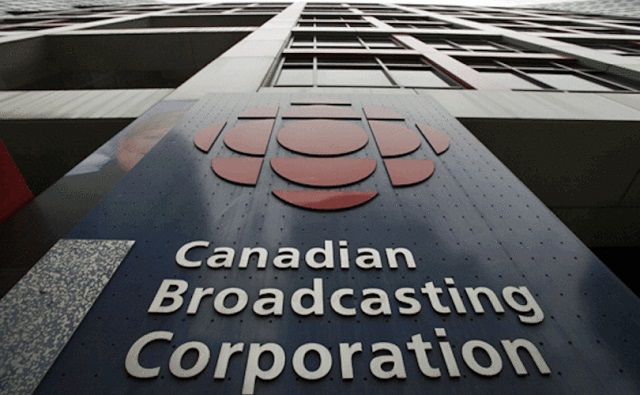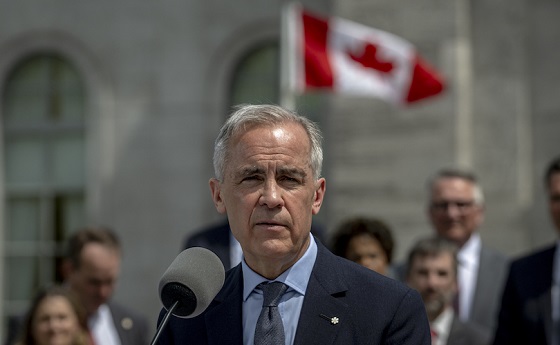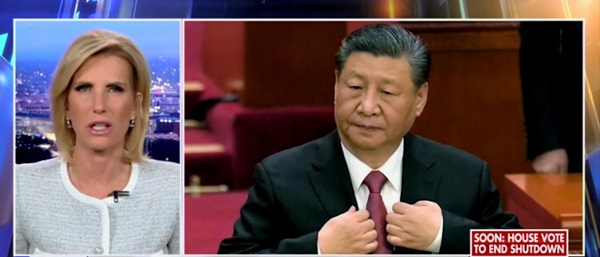Business
CBC television ad revenue dropped 16% in first half of 2023 as mainstream media flounders

From LifeSiteNews
The news comes just weeks after the CBC announced it must lay off about 600 workers, approximately 10 percent of its staff, as it faces a $125 million budget shortfall.
The Canadian Broadcasting Corporation (CBC) television ad revenues plummeted by 16 percent in the first half of this year, a further indication that mainstream media is struggling to keep pace in the independent era.
According to information obtained December 19 by Blacklock’s Reporter, CBC, Canada’s public radio and television broadcaster, published their Second Quarter Financial Report which revealed that television ad revenues decreased from $95.7 million to $80.6 million in the first six months of 2023.
“There is much to do to prepare CBC for an uncertain future,” President and CEO Catherine Tait said. “We are experiencing the same challenges as other media in Canada and around the world.”
The news comes after Tait failed to mention the reduced ad revenues at the November 2 Commons heritage committee. It is also just weeks after the CBC announced that it must lay off about 600 workers, approximately 10 percent of its staff, as it faces a $125 million budget shortfall.
According to the report, from the beginning of the year until September 30, the CBC lost 16 percent of its television ad revenues for both English and French programming. The report further states that it does not expect a recovery from the loss for years.
“In response to the federal Budget 2023 announcement to reduce spending by three percent and in light of both the softening of the TV advertising market and the current economic environment we are developing an analysis of the revised financial context that presents an updated version of our financial pressures including the adverse revenue outlook for the next three years,” it said.
“We occupy an important place in the Canadian broadcasting system and face a unique set of risks,” the report stated. “Like all broadcasters we must adapt to accelerated technological changes, shifts in demographics, evolving consumer demands, increasing regulatory scrutiny and structural changes in the media ecosystem.”
Despite its revenue “tracking below target,” the CBC receives major funding from the Liberal government under the leadership of Prime Minister Justin Trudeau. The government subsidies make up CBC’s largest single source of income, a fact that has become a point of contention among taxpayers who see the propping up of the outlet as unnecessary.
On November 2, Tait claimed that the CBC requires further government funding, saying “To be clear over the last 30 years CBC has not had a real increase in its budget, real dollars aside.”
“When I started at CBC the number of people watching traditional television was at about 28 percent,” she added. “It has now dropped to 14 percent.”
Tait’s comment seems unfounded considering the CBC was set to receive increased funding as a result of mandated deals signed with Big Tech under Trudeau’s Online News Act.
The deal was finalized in early December. Under the new agreement, Google will pay legacy media outlets $100 million to publish links to their content on both the Google search engine and YouTube.
As a result of the recent subsidies and the Google agreement, roughly half the salary of a journalist earning $85,000 is estimated to be paid by the combined contributions of the Trudeau government and Google.
Furthermore, Trudeau recently announced increased payouts for legacy media outlets ahead of the 2025 election. The subsidies are expected to cost taxpayers $129 million over the next five years.
Beginning in 2019, Parliament changed the Income Tax Act to give yearly rebates of 25 percent for each news employee in cabinet-approved media outlets earning up to $55,000 a year, to a maximum of $13,750.
However, the Canadian Heritage Department has since admitted that the payouts are not sufficient to keep legacy media outlets running. Accordingly, the Trudeau government doubled the rebates to a maximum of $29,750 annually, up to 35 percent of a journalist’s salary.
Furthermore, despite being nominally unaffiliated with either political party in Canada, the CBC receives massive funding from the Trudeau government. According to its 2020-2021 annual report, the CBC takes in about $1.24 billion in public funding every year, which is roughly 70 percent of its operating budget.
However, the massive payouts are apparently insufficient to keep CBC afloat amid growing distrust in mainstream media.
According to a recent study by Canada’s Public Health Agency, less than a third of Canadians displayed “high trust” in the federal government, with “large media organizations” as well as celebrities getting even lower scores.
Large mainstream media outlets and “journalists” working for them scored a “high trust” rating of only 18 percent. This was followed by only 12 percent of people saying they trusted “ordinary people,” with celebrities receiving only an eight percent “trust” rating.
Business
Parliamentary Budget Officer begs Carney to cut back on spending

PBO slices through Carney’s creative accounting
The Canadian Taxpayers Federation is calling on Prime Minister Mark Carney to cut spending following today’s bombshell Parliamentary Budget Officer report that criticizes the government’s definition of capital spending and promise to balance the operating budget.
“The reality is that Carney is continuing on a course of unaffordable borrowing and the PBO report shows government messaging about ‘balancing the operating budget’ is not credible,” said Franco Terrazzano, CTF Federal Director. “Carney is using creative accounting to hide the spiralling debt.”
Carney’s Budget 2025 splits the budget into operating and capital spending and promises to balance the operating budget by 2028-29.
However, today’s PBO budget report states that Carney’s definition of capital spending is “overly expansive.” Without using that “overly expansive” definition of capital spending, the government would run an $18 billion operating deficit in 2028-29, according to the PBO.
“Based on our definition, capital investments would total $217.3 billion over 2024-25 to 2029-30, which is approximately 30 per cent ($94 billion) lower compared to Budget 2025,” according to the PBO. “Moreover, based on our definition, the operating balance in Budget 2025 would remain in a deficit position over 2024-25 to 2029-30.”
The PBO states that the Carney government is using “a definition of capital investment that expands beyond the current treatment in the Public Accounts and international practice.” The report specifically points out that “by including corporate income tax expenditures, investment tax credits and operating (production) subsidies, the framework blends policy measures with capital formation.”
The federal government plans to borrow about $80 billion this year, according to Budget 2025. Carney has no plan stop borrowing money and balance the budget. Debt interest charges will cost taxpayers $55.6 billion this year, which is more than the federal government will send to the provinces in health transfers ($54.7 billion) or collect through the GST ($54.4 billion).
“Carney isn’t balancing anything when he borrows tens of billions of dollars every year,” Terrazzano said. “Instead of applying creative accounting to the budget numbers, Carney needs to cut spending and debt.”
Business
Carney government needs stronger ‘fiscal anchors’ and greater accountability

From the Fraser Institute
By Tegan Hill and Grady Munro
Following the recent release of the Carney government’s first budget, Fitch Ratings (one of the big three global credit rating agencies) issued a warning that the “persistent fiscal expansion” outlined in the budget—characterized by high levels of spending, borrowing and debt accumulation—will erode the health of Canada’s finances and could lead to a downgrade in Canada’s credit rating.
Here’s why this matters. Canada’s credit rating impacts the federal government’s cost of borrowing money. If the government’s rating gets downgraded—meaning Canadian federal debt is viewed as an increasingly risky investment due to fiscal mismanagement—it will likely become more expensive for the government to borrow money, which ultimately costs taxpayers.
The cost of borrowing (i.e. the interest paid on government debt) is a significant part of the overall budget. This year, the federal government will spend a projected $55.6 billion on debt interest, which is more than one in every 10 dollars of federal revenue, and more than the government will spend on health-care transfers to the provinces. By 2029/30, interest costs will rise to a projected $76.1 billion or more than one in every eight dollars of revenue. That’s taxpayer money unavailable for programs and services.
Again, if Canada’s credit rating gets downgraded, these costs will grow even larger.
To maintain a good credit rating, the government must prevent the deterioration of its finances. To do this, governments establish and follow “fiscal anchors,” which are fiscal guardrails meant to guide decisions regarding spending, taxes and borrowing.
Effective fiscal anchors ensure governments manage their finances so the debt burden remains sustainable for future generations. Anchors should be easily understood and broadly applied so that government cannot get creative with its accounting to only technically abide by the rule, but still give the government the flexibility to respond to changing circumstances. For example, a commonly-used rule by many countries (including Canada in the past) is a ceiling/target for debt as a share of the economy.
The Carney government’s budget establishes two new fiscal anchors: balancing the federal operating budget (which includes spending on day-to-day operations such as government employee compensation) by 2028/29, and maintaining a declining deficit-to-GDP ratio over the years to come, which means gradually reducing the size of the deficit relative to the economy. Unfortunately, these anchors will fail to keep federal finances from deteriorating.
For instance, the government’s plan to balance the “operating budget” is an example of creative accounting that won’t stop the government from borrowing money each year. Simply put, the government plans to split spending into two categories: “operating spending” and “capital investment” —which includes any spending or tax expenditures (e.g. credits and deductions) that relates to the production of an asset (e.g. machinery and equipment)—and will only balance operating spending against revenues. As a result, when the government balances its operating budget in 2028/29, it will still incur a projected deficit of $57.9 billion when spending on capital is included.
Similarly, the government’s plan to reduce the size of the annual deficit relative to the economy each year does little to prevent debt accumulation. This year’s deficit is expected to equal 2.5 per cent of the overall economy—which, since 2000, is the largest deficit (as a share of the economy) outside of those run during the 2008/09 financial crisis and the pandemic. By measuring its progress off of this inflated baseline, the government will technically abide by its anchor even as it runs relatively large deficits each and every year.
Moreover, according to the budget, total federal debt will grow faster than the economy, rising from a projected 73.9 per cent of GDP in 2025/26 to 79.0 per cent by 2029/30, reaching a staggering $2.9 trillion that year. Simply put, even the government’s own fiscal plan shows that its fiscal anchors are unable to prevent an unsustainable rise in government debt. And that’s assuming the government can even stick to these anchors—which, according to a new report by the Parliamentary Budget Officer, is highly unlikely.
Unfortunately, a federal government that can’t stick to its own fiscal anchors is nothing new. The Trudeau government made a habit of abandoning its fiscal anchors whenever the going got tough. Indeed, Fitch Ratings highlighted this poor track record as yet another reason to expect federal finances to continue deteriorating, and why a credit downgrade may be on the horizon. Again, should that happen, Canadian taxpayers will pay the price.
Much is riding on the Carney government’s ability to restore Canada’s credibility as a responsible fiscal manager. To do this, it must implement stronger fiscal rules than those presented in the budget, and remain accountable to those rules even when it’s challenging.
-

 Frontier Centre for Public Policy1 day ago
Frontier Centre for Public Policy1 day agoRichmond Mayor Warns Property Owners That The Cowichan Case Puts Their Titles At Risk
-

 National2 days ago
National2 days agoConservative bill would increase penalties for attacks on places of worship in Canada
-

 armed forces2 days ago
armed forces2 days agoCanadian veteran says she knows at least 20 service members who were offered euthanasia
-

 Daily Caller2 days ago
Daily Caller2 days agoLaura Ingraham’s Viral Clash With Trump Prompts Her To Tell Real Reasons China Sends Students To US
-

 Alberta2 days ago
Alberta2 days agoHow economic corridors could shape a stronger Canadian future
-

 Business2 days ago
Business2 days agoSluggish homebuilding will have far-reaching effects on Canada’s economy
-

 Business1 day ago
Business1 day agoMark Carney Seeks to Replace Fiscal Watchdog with Loyal Lapdog
-

 Censorship Industrial Complex21 hours ago
Censorship Industrial Complex21 hours agoEU’s “Democracy Shield” Centralizes Control Over Online Speech










